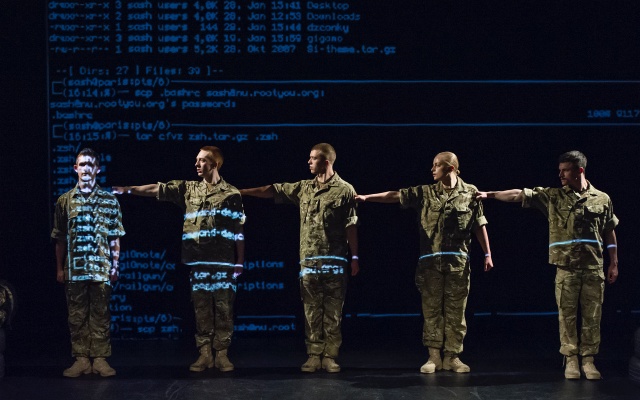You were forced out of your own dance company after some members disagreed with your views on gender. How was it possible in the free society such as Great Britain?
This is the question really. A year later and I am still trying to work out what happened and how could those around me bully me out of my own company, in fact only now am I started to feel furious that these people, who should have protected me and my art, chose to ostracise and blame me, for holding views that are not just mainstream, but now also legally protected in the UK, thanks to Maya Forstater.
Just a little bit of background to the legal set up of my company. I founded Rosie Kay Dance Company in 2004, first as a Limited by Share company, of which I was a director and could pull a dividend from. As the company grew, we decided that as a charity, it would attract more funding and would not need to pay tax. In English charity law, a Trustee cannot financially benefit from the charity they serve, and so I agreed to step down as a director and become an employee. What that afforded me was a salary for the first time, holiday pay, sick pay, pension etc, but what I didn’t realise was that at that point I had ceded control to my board. Previously, with the controversial and difficult work that I had made; 5 SOLDIERS on the war in Afghanistan or MK Ultra about conspiracy theory and CIA brainwashing, I had still been in full control, and so any criticism or attacks were handled by me, and I shouldered the responsibility of my own reputation. Once you are no longer in control, the board became more nervous for their own personal and professional reputations rather than the reputation of the charity, the art and the artist.
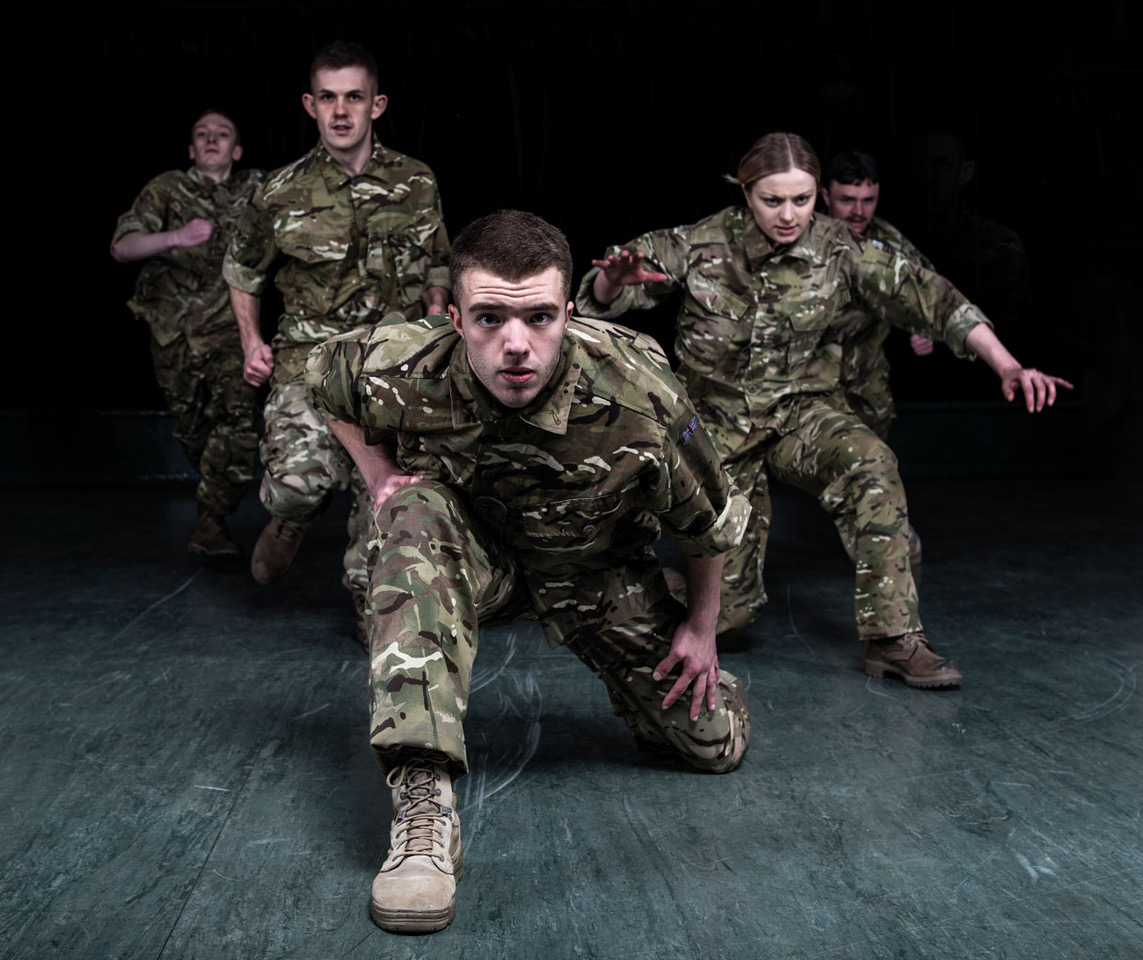
5 SOLDIERS, Tim Cross
During the creation period of a new production of Romeo+ Juliet, I invited the young cast to my home for dinner and time to relax as we’d have very little social time due to Covid restrictions. Late into the night, they asked me about my next production- an adaptation of Virginia Woolf’s novel Orlando, of which I was about 2 years into research for. This incredible, funny, witty and imaginative novel follows the eponymous hero through over 400 years of British history, and halfway through the novel transforms from being a man into being a woman, all the while never aging much beyond 30 years old. I’d consulted with various groups (an LGBT book club) and people (including trans people and other artists) and I held no firm belief as to if the role should be played by a man, a woman, a trans identified person or a non-binary identified person. They just had to be extraordinary to cope with the role and the large scale of the production. A debate ensued about casting- with the dancers seeming to insist that the role had to be for a trans person, which raised questions for me (are they male to female or female to male?). The debate heated up, and I attempted to explain why erasing the word ‘woman’ in law had serious problems for women in vulnerable situations and the blurring of language affecting the Equality Act 2010. If trans women in ALL situations are treated as women, then the system could be abused and in prisons, sports, changing rooms, toilets and hospitals safeguarding could be broken down. As reform to the ‘Gender Recognition Act’ was being debated as part of a UK Government consultation, a lot of women had been asking questions about what ‘sex’ means as a protected characteristic in law, if anybody can identify into it? I was also greatly concerned with what was happening with children being pushed down a trans route through organisations such as the Tavistock Clinic in London, which can lead to irreversible changes to a child’s body, through taking Puberty Blockers (Lupron for example), wrong-sex hormones and sex reassignment surgery. As the rise of young people identifying as trans has vastly increased in young teenage girls, I really am concerned that we are ‘trans-ing away’ young women’s ability to grow to fully formed adults and potentially ‘trans-ing away the gay’ with internalised homophobia and misogyny.
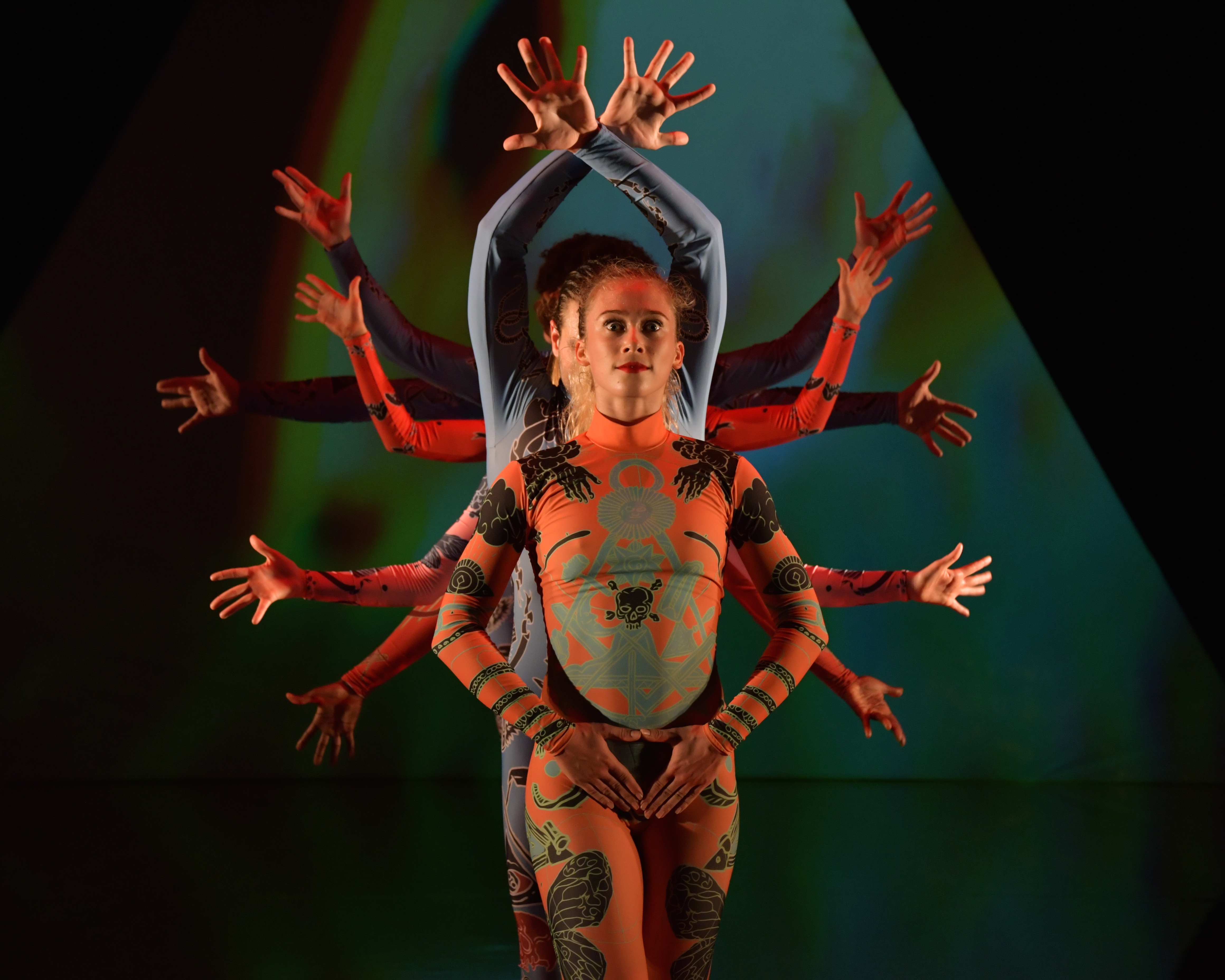
MK Ultra 2018, Brian Slater
I had no idea that the young people that night, some of whom I had known and supported for many years, held extreme gender identity ideology beliefs, and that I was not in trusted private company, and not allowed to question this, despite being older, more experienced, and trained in anthropology. The repercussions back at work sent me into a state of shock, as I’d revealed personal things about myself to try to elicit their understanding, all to no avail. I’d opened myself up, but that seemed to give them further ammunition with which to attack me to the board. Nothing like this had ever happened to me before and I felt extreme fear. I had a big show to make and a positively hostile cast. I asked my Chair to step in to help, but instead of smoothing everything down and explaining that we can have opposing views, even strongly opposing views, but that it is legal and acceptable in private conversation and in a pluralistic society, she stoked the flames. She had undergone some ‘gender’ training and had swallowed it wholesale without understanding the deeper questions around sex, identity and gender.
In the end I went through one investigation, I was exonerated, but a dancer appealed, and my board brought in their own expensive lawyers and (non-independent) HR investigators at the expense of my company and my company reserves. They started to behave in an incredibly hostile way, and I lost all trust with them to uphold the charitable objects of the company, which included the fact that the company existed to ‘shine a light on taboo and controversial subject matter through dance’. In the end I had advice from lawyers that this was a case of ‘constructive dismissal’ e.g. my board were not fulfilling their duty to me as an employee. I also cited direct discrimination based on my views in my resignation letter. I wasn’t going to go quietly though, and I did one interview with The Times, which caused quite a stir. The board folded the company the following week, which made it somewhat impossible to sue them, and they then declared themselves insolvent. After 10 months of striving, I have bought out the old company assets and am able to use my name again.
Some people might question if I have been cancelled or not. The cancellation has been profound- I lost my salary, my funding, a premiere and production of Orlando (cancelled without my permission). I lost my company, my company reserves and for a period, I lost control of my name and the full control of some of my works. I have had to start from scratch again, and build from nothing to something, without any guarantee anyone would work with me. I also have been pulled off projects, out of a show, out of a performance, I was cancelled by a theatre and pulled off talks and panels, all by complaints that my beliefs might make some feel unsafe, never on the quality or substance of my work. I chose not to go to the press with these incidents, as I wanted to build only on the positive, but these cancellations have been brutal, painful, and harrowing. While my life has been stopped and the effects on my health and the security of my family has been profound, I also did not want to go quietly, nor hide in my attack for the rest of my life. I knew I did nothing but speak the truth, in the privacy of my home, and I know that many things went on behind the scenes in my company, some of which was not legal and lot of it was discriminatory, and in my heart this battle was existential. The people around me tried to silence me now and in all my future work, and all I have is my body, my mind, my research and training and discipline. I was willing to give everything up to be free, or otherwise I would be a prisoner in the cage of my own life, and I would never make the work I wanted to make.
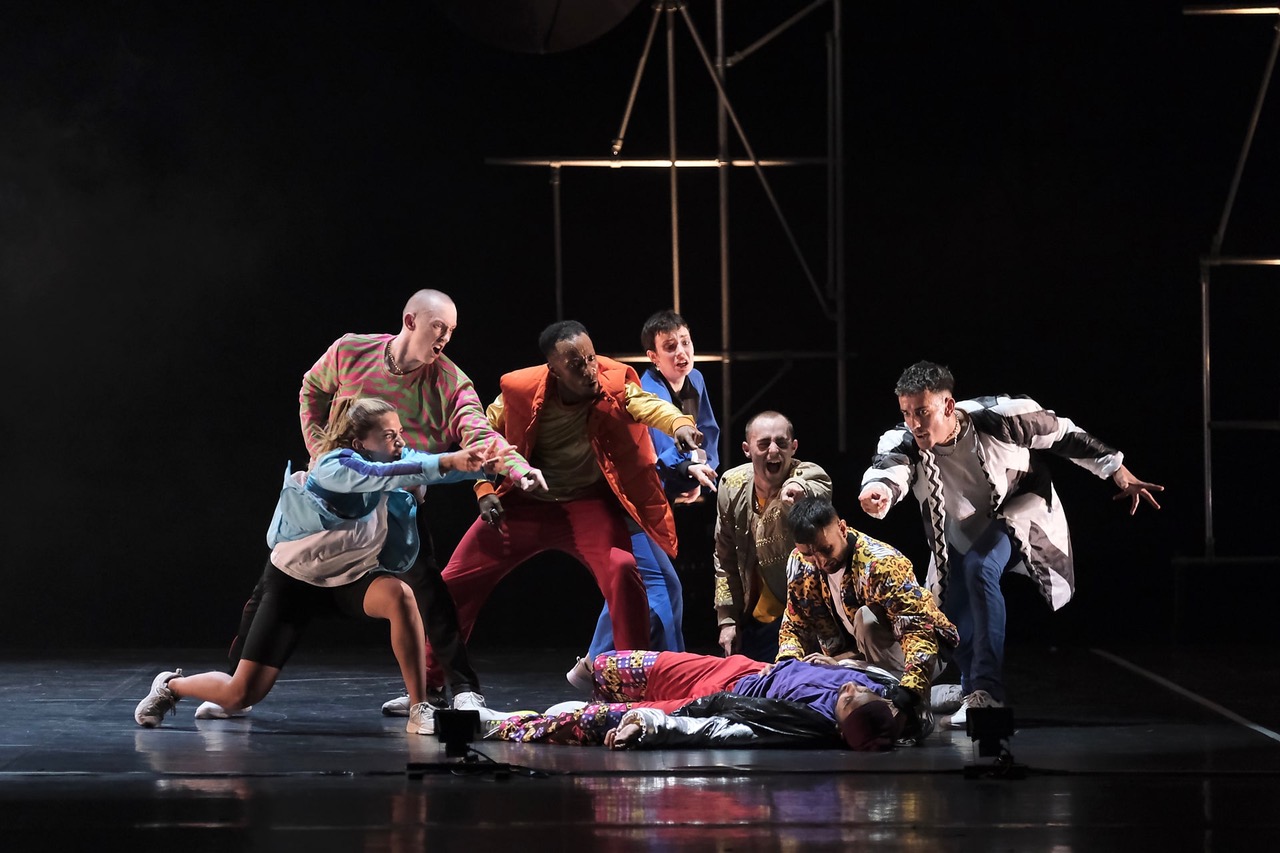
Romeo+Juliet 2021, Brian_Slater
You have a proven track record of great dance productions, years of working with disaffected youth in Birmingham, going deeply into studying every subject matter that resulted in your productions e.g. What went wrong?
I think I have stayed entirely consistent, exploring difficult subject matter, asking questions, diving really deeply into all my subject matter. I think that as Virginia Woolf said, in order to be a true artist, one must daily practice freedom. Having the freedom to follow my instinct, to go to difficult and dark places, despite my fear, is my job and my joy as an artist. I do not see the point otherwise.
I have a fantastic body of risky, hard-hitting and some quite beautiful works, all works that have 3-5 years of research behind them. It is hard, and at times lonely. Joining an all-male infantry battalion to create 5 SOLDIERS was one of the most intense experiences of my life. I travelled alone to India and China to research There is Hope, and I studied brainwashing and conspiracy theory when academics were warning me it would be ‘career suicide’. With Romeo+ Juliet I worked with a 98% Muslim school in Birmingham, working with an entire year group over a year, offering dance as a way of exploring the Shakespeare text, but also discussing issues that affected the children, such as gangs, forced marriage, knife crime and family pressures. I spent time on the beat with West Midlands Police, which was actually more scary than the Army, as it was so highly unpredictable.
I think all this research, in person, anthropological field research if you like, has given me a lot of resilience and determination. Once I feel a strong idea, I won’t let go until I understand it as fully as I can. Even with my more abstract works Supernova or Fantasia, I worked with astro-physicists and neuroscientists, exploring deep space and the measurements of beauty and joy in the brain. I am also used to asking questions- and I mean really ask questions- I enjoy it, to uncover others beliefs.
What happened was the world changed and it lost its grip on reality, which is a highly disturbing place for an artist. How can an artist respond with the full self and imagination, if everyone else is starting to believe and act as if they are members of a cult? There is a culture that is very odd in the West, which I did notice growing from about 2016 onwards, but might have sensed it growing even earlier. The culture now has taken a strong hold over many areas of life- the arts particularly but also health, the police, education, many aspects. The culture says you cannot speak freely and you cannot question certain orthodoxies which were far extreme fringe only a few minutes ago. Take the concept of ‘being born in the wrong body’. As a dancer, I know my body very well. I have strived against it, I have worked with it, I have hated it, been ashamed of it, it has given me joy and pleasure, it has done things I cannot believe, and it has been badly injured and healed itself slowly with help. This is all I’ve got, all that my livelihood has depended on at times, and the medium of which my art communicates with others. It is simply not true that you have the wrong body, one just has a disassociation between your mind, your perception of yourself and your physical reality. For that I am deeply empathetic and would offer either support or embodied work, e.g. really getting into your body- like mountain climbing, swimming, rock climbing, sex etc.- these things help us transcend the mind and really be in our bodies, and be in the present. I also can not lie- I cannot pretend something that I do not believe. I would not pretend to be religious just to be kind, and I have lived in a Mormon community and felt that pull to do so. I cannot pretend that a man can become a woman or vis versa. I repeat I do have empathy, particularly for young women, as I know how much you can despise your body at this age- not only through my own experiences but also working with women with disordered eating for a year at University of Oxford exploring dance as a method of exploring illness narratives.
What went wrong was that my own beliefs and opinions and research were not respected. I was attacked for wrong think by the gang. I was not defended, and I was vulnerable. I was cast as the heretic to burnt on the stake.
In the past decade there has been a rapid increase in gender diversity, particularly in children and young people, with referrals to specialist gender clinics rising. What has changed in those years?
So now the gender world is an industry. It is a vast, quickly growing industry that targets children, recruits young people, sells quack science to schools, as pharmaceutical companies rake in millions of dollars of profit and plastic surgeons get rich chopping of body parts and mutilating children. It is worth too much money to shut down easily.
I think this has been a 40+ year project, and some of it is linked to organised paedophilia, Queer Theory and some of it linked to big pharma and the plastic surgery industry. How everyone got captured will be studied, but there is a myriad of organisations- Stonewall and Mermaids are two high profile ones in the UK, but there are many, who managed to lobby, re-write policy, and campaigned not for the law but for how they wanted the law, and through some kind of mis-placed sense of ‘being on the right side of history’ too many people of the older generation accepted it, not wanting to appear out of step like many were in the 80’s and 90’s when it came to HIV/ AIDS, homophobia and Gay Rights. Gender Identity Ideology has been packaged as the new civil rights movement and the older, less switched-on people, accepted it without question. And they make feeling uncomfortable part of that- ‘you may feel a bit uncomfortable but that’s you doing the work’ etc. which helps embed these bad-science and frankly pseudo-religious ideas into organisations and policy.
For children and young people, I think it is more complex. There is a generation of young people who raised themselves on internet forums. Whereas once we would have seen our children go outside to play, and who they were playing with, and given them a lot of freedom, more recently young people stayed inside, where we could see them, but we didn’t know who they were talking with online. It created a ripe place both for abuse and bullying, but also a gang-style culture where anyone could be turned on at any time, totally unsupervised. One writer described this as the ‘Lord of the Flies’ generation, who grew up in an unregulated online world, and learnt behaviours of how to survive, which are alien to us who gained these technologies in our late teens or adult lives.
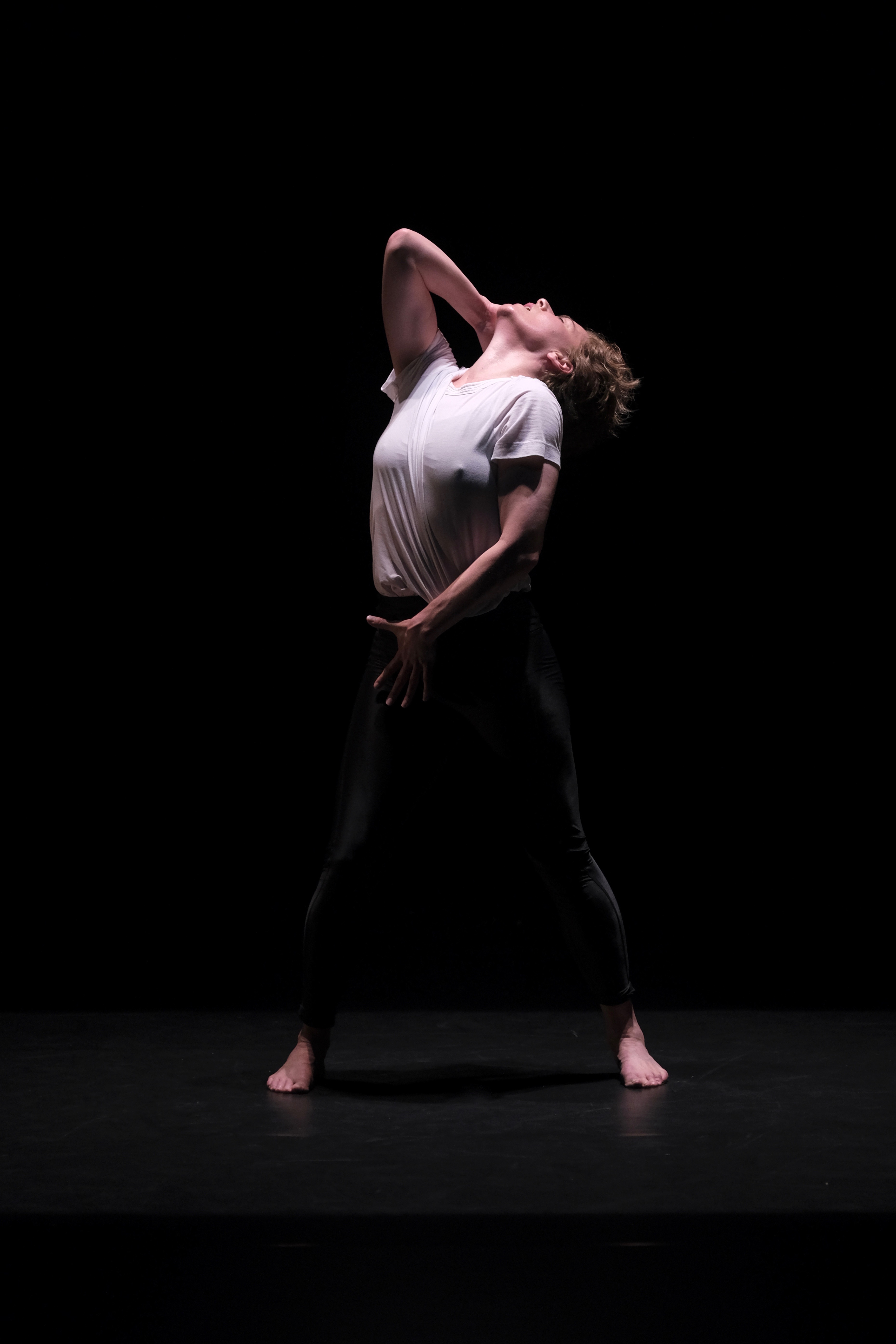
Adult Female Dancer 2021, Brian Slater
As I saw, exploring eating disorders online and the pro-ana (pro-anorexia) communities, there is a propensity to dark posts and sites receiving more attention, and I think that has grown in waves through an element of social contagion. For example, the pro-ana communities often morphed into self-harm sites and even suicide ideation sites. Porn has had a horrific and seemingly unstoppable effect on young people, both in the consumption of what would have been categorised as extreme hard core being normalised in less than 10-15 years, but also the way in which sending dick pics and nude photos have become the norm with young people which can be used in revenge attacks and bullying. The use of this porn, particularly by boys to bully and intimidate girls has caused a lot of girls to feel ashamed about their bodies and I think form a deep disassociation from their burgeoning female sexuality. Why have boobs if they become objects of ridicule, harassment, and attention? I think many women can identify with the feeling of feeling deeply dysphoric about our bodies through puberty. I was a dancer, so I was so ashamed of the fact I was very late to develop, but then when I did suddenly develop at 17 years old, just when I went to dance school, I was utterly ashamed of my new curves and my weight gain and shape change. So, combining online bullying, porn, objectification of women’s bodies and women’s humiliation on a vast industrial scale and personalised bullying of individual girls (you do not want to be the one who ends up with their photo shared across the whole school) I think it has put young people and their relationship to their bodies, to puberty and to sex in a very precarious and vulnerable position.
Meantime, we had a generation of academics and intellectuals, who seem to have worshipped at the altar of Queer Theory, Critical Race Theory, Michel Foucault and Judith Butler. Everything is a relationship between power and oppression, and love, trust and experimentation, even being mistaken has been dismissed as out of touch. These academics have been working in Higher Education for a long time, particularly in areas around teaching theory and practice. These people now have the positions of authority and are able to bring these theories into schools; theories of being ‘born in the wrong body’ of ‘gender is a spectrum’, of the spectrum between GI Joe (masculinity) and Barbie (Femininity) and teach them not as contested and unevidenced theory, but as fact to young minds. I find this aspect shocking as it is happening across the USA and UK and often as parents, we are not allowed to see the materials being taught.
To play the devil’s advocate isn’t it unkind to dismiss the suffering of young people who are benefiting from the development of new medical technologies? Could it be potentially based on fear of the new, the unknown?
I have the upmost empathy and understanding for young people who feel in deep distress about their bodies, their puberty and their identities. This is an area of my work I have been involved in for nearly 25 years, and I truly believe that dance- the mental and complex skills of harnessing your mind, body and imagination to create and practice dance works can help in this feeling of disembodiment.
However, I feel that these young people who feel like this are victims of a society that has created a perfect storm for young people, in which they feel nihilistic through constant bombardment of the helplessness of climate change, the diet of porn that is now on a vast industrial scale and is deeply misogynistic and harmful to both girls and to boys, affecting at root, the very basis of consensual and exciting mutual sexual development, and the use of online bullying and tribal behaviours that mean you need to fit in or be special to stand out.
There is no doubt in my mind, that the treatment for this contagion is twofold- one is to treat each child or young person with a multi-disciplinary team that looks at the psychological roots of each young person’s body-dis-ease (as per the new Cass Report and NHS recommendations), and secondly we need to look at how we bring our young people up and what they are exposed to at a young age through the internet.
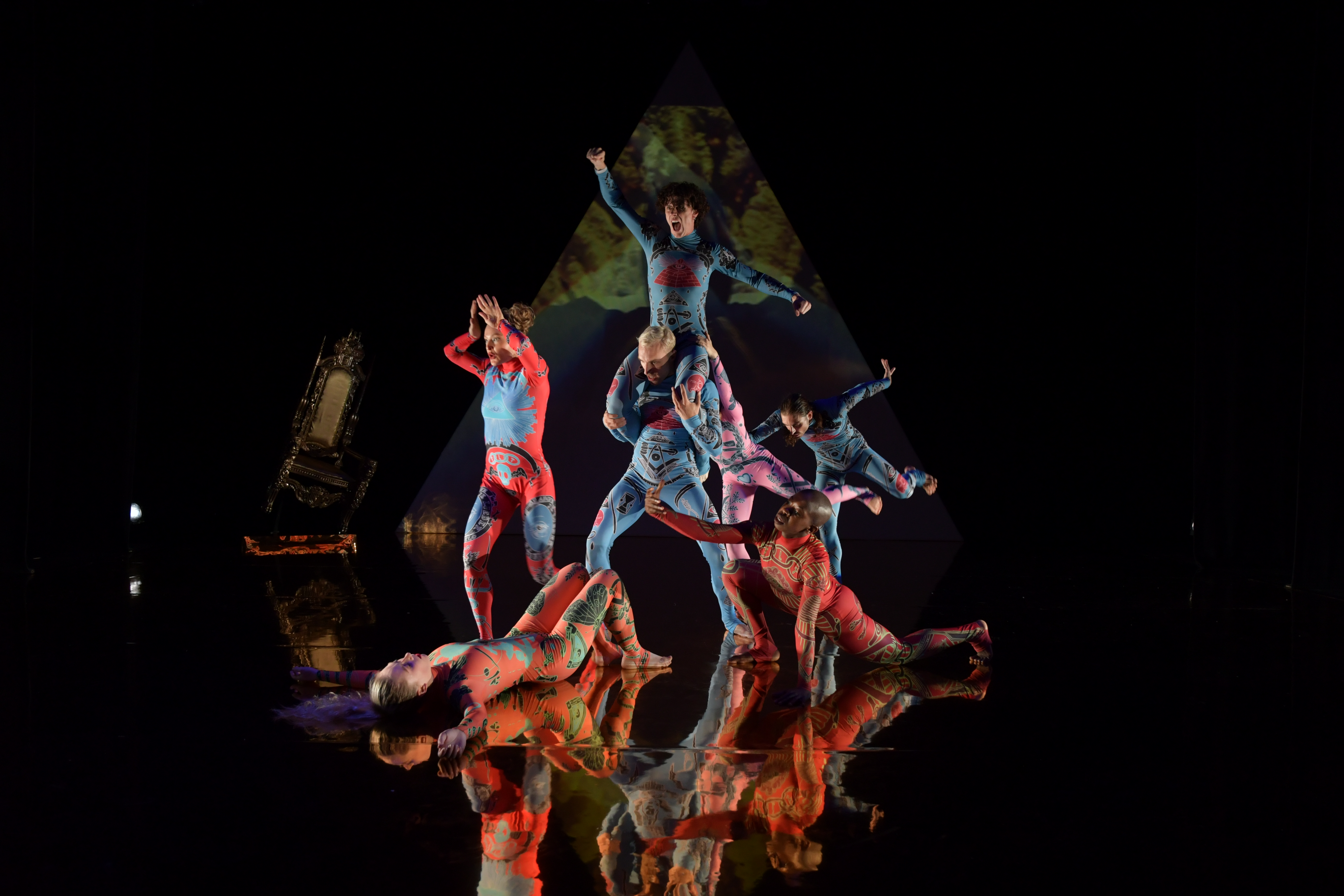
MK Ultra 2018, Brian Slater
What I also believe is that putting children or young people on life changing drugs is not the answer. Immediately affirming a child, eg acting and behaving as if they are the opposite sex, puts them down a one way track towards drugs and eventually, life changing surgery. These drugs are not safe nor reversible, as has been shown by evidence in the UK, Sweden, Finland and France. These drugs cause bone and brain development issues, sexual function issues, and sex-reassignment surgery is non reversible and has very high level of long-term debilitating side effects, often leading to incontinence and potentially early dementia. This is a terrible price for any young person to pay for feeling deep discomfort with their bodies or with any kind of sex stereotype. There must be better, safer ways to treat this.
Listening to the de-transitioners is very important- they talk very coherently about why they thought they were trans, how they were pushed into affirming this and what kind of physical repercussions they now face. One de-transitioner talked about how their life is now on a hormonal leash- they have destroyed their own endocrinal system by taking Lupron and wrong sex hormones, and so will need to take synthetic sex hormones for the rest of their lives. Of course, this brings a lifelong patient to the pharmaceutical company, worth over $1million in their lifetimes. I think this is tragic- we need to remember here that we are dealing with people who had perfectly healthy normal human bodies, who now are medical patients for life. These were confused adolescents who would have grown up to be gay or lesbian or gender non-confirming, with the ability to orgasm, have satisfying sex lives, form bonds and re-produce- a human right. Now, these young people face sexual satisfaction issues, issues with forming long term relationships and all too sadly, sterilisation. I don’t think any young person, even under 25 years old, should be allowed to do this.
Knowing that so many have either financial or ideologically driven interest in supporting transitioning industry what is the role of the democratic governments? Isn’t British society diverse in its religious and cultural make up?
I think it has been evidenced that the Lib Dems took a rather large donation from a puberty blocker manufacturer Ferring, since 2012 which is amounted to almost £1.5m. I do find that depressing, as how can they be unbiased about a situation when they are taking such a large amount from a company involved in profiting from gender identity ideology? I don’t know about other political parties, but in the UK Labour, SNP, Lib Dems and The Greens have all signed up to relaxing self-ID laws, without hardly any consultation nor listening to any of women’s (and some men’s) concerns.
In the UK a whole myriad of new organisations has shot up and are tackling with integrity and serious evidence this new non-scientific based phenomenon. These organisations include Sex Matters, led by Maya Forstater and Helen Joyce, Transgender Trend led by Stephanie Davies-Arai (OBE) and LGB Alliance set up by a former founder of Stonewall and of Gay Liberation Front, Kate Harris and Bev Jackson. All incredible organisations, led by amazing women and getting a huge amount of personal abuse for doing so.
What we also have are some excellent journalists who are determined to keep printing investigative journalism and excellent opinion pieces. Many female journalists have left papers they worked for years on, such as Suzanne Moore. While we used to have newspapers which were politically divided to the left and right, those boundaries have become blurred and it is a little more along the lines of the woke and the woke-critical. Which is interesting, as papers that I was lifelong reader of- like The Guardian, which I still read online on occasion, I now subscribe to The Times as I’m a huge fan of Janice Turner’s writing. She has been on this subject of gender and feminism from the beginning and thank god for her- many women would have thought they’d have lost their minds without her voice chiming so clearly with truth.
There are women’s voices from religious communities speaking up about how this damaged their rights. One flash point has been the Hampstead swimming ponds in London- there was one male, one female only and one mixed. The female pool has become trans inclusive, and so orthodox Jewish women have been vocal in speaking up about being unable to now swim there (this is a very Jewish area of North London). In my city, it was the Muslim women who spoke up about the ‘No Outsiders’ education anti-bullying package created by a primary school teacher, Andrew Moffat. They called out when their small children (age 7 or 8) returned home from school asking if they could change to become a boy if born female, or to become a girl if born male. When the mothers spoke out, they were smeared as being homophobic, and when the full Muslim community got involved, their nuanced resistance to gender identity ideology was drowned out in accusations of anti-Muslim prejudice on one side and homophobia on the other.
I think one area institutions will come unstuck is if they allow all their single sex spaces to become ‘gender neutral’ or rather unisex. This not only worries a lot of women, particularly those who have suffered sexual or violent assault from men, but it will actually completely exclude women of faith who cannot be in these spaces, thus limiting their ability to interact and participate in society or gain an education. This will certainly be against the Equality Act 2010 on the basis of sex and belief.
The good news is our new PM, Rishi Sunak, after only a few days in the post said that as a priority he would be looking at clarification of the Equality Act 2010 and making sure single-sex exceptions (eg women only spaces, based on sex not identity such as toilets, changing rooms, rape crisis centres, prisons, hospitals and sports) will be strengthened and upheld clearly in law. This would be great news, so that women can stop having to take expensive court cases to uphold the rights which are already held by women in law and for safeguarding purposes.
Going back to art and in particular dance and choreography; what is the influence of transgender ideology on it?
The whole irony of this situation is that I was probably one of the least gender conforming choreographers out there! I loved playing with ideas, sex, costume, stereotypes, gender norms, sex stereotypes and all that this means on stage, and I think dance is a fabulous place to do this! I was so excited about creating Orlando - it really was an excuse to look at all aspects of this with humour, a lightness of touch, defy all expectations.
I think traditionally, dance was always quite future thinking, for a me a world that challenged norms and turned everything you expected on its head. This is what I love in dance. My heroes and heroines were people like Michael Clarke, Lyndsey Kemp, Lloyd Newson and going further back Mary Wigman, Gret Palucca and Valeska Gert; women and men who challenged every traditional role thrown at them and making political and socially aware work that was beautifully executed.
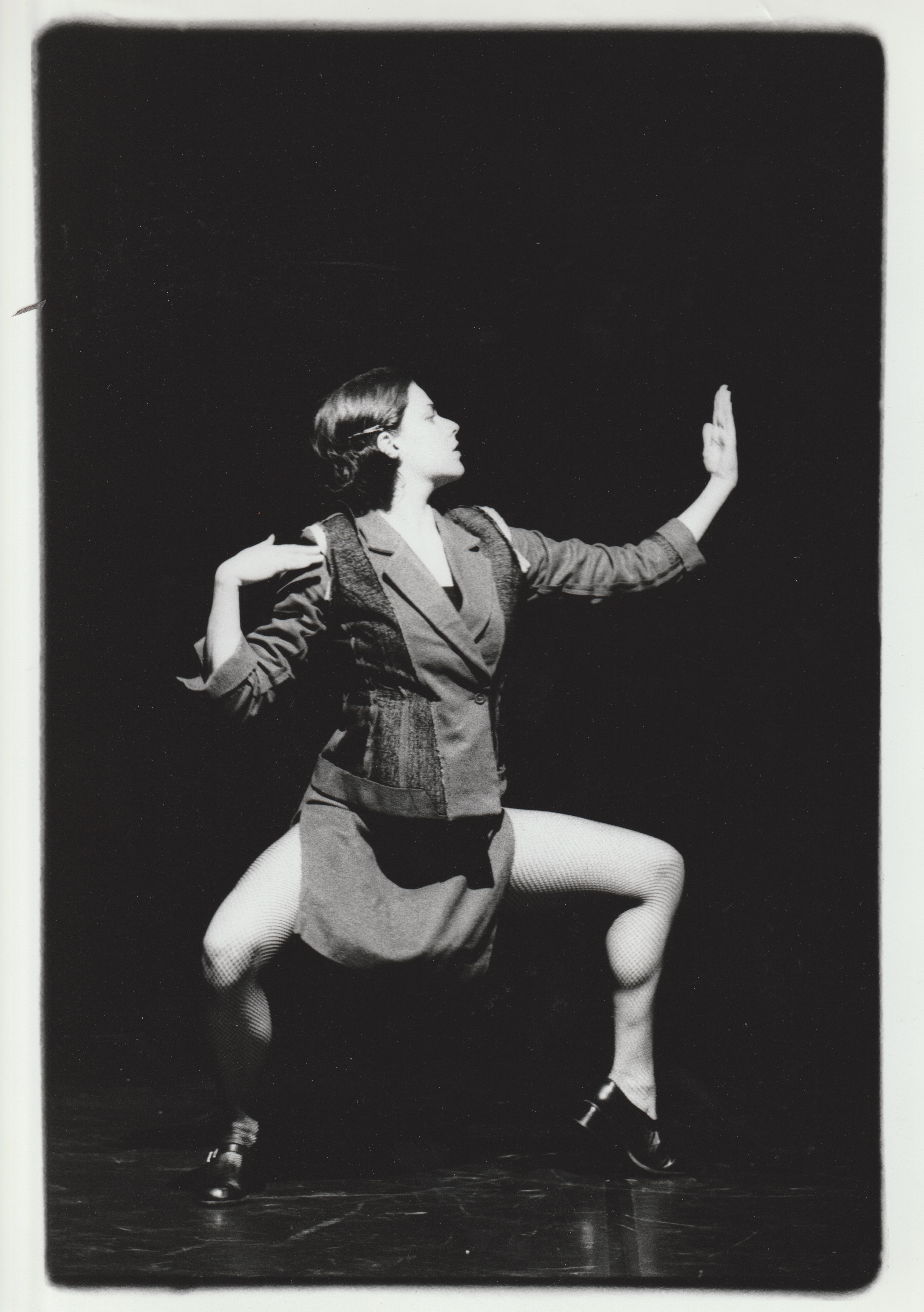
Patisserie 1999, Rosie Kay
Where we are right now has everything flipped on its head. I would say that the contemporary dance world is firmly captured, way more than I would have anticipated, and think this has come through poor teaching and poor thinking in the Conservatoires. They have adopted Queer Theory, CRT and transgenderism without even a hesitation or pause for questioning its validity. I am very disappointed by this level of thinking and groupthink- why have they adopted this without first questioning what they are throwing out and its great pedagogic traditions? Which means that the ballet world, while in some places being quite progressive, actually has hung on to a lot more of its traditions- there is a reason it is hundreds and hundreds of years old- the traditions and teaching methods are strong and not as easily destroyed.
For me I want to explore this stuff more than ever- for example a show like 5 SOLDIERS, based on research with the British military, depends on how the stereotypes and expectations the audiences come with (and military audiences) of how we perceive the 4 male and 1 female soldier, are turned completely on their head, not once but several times and throughout the show.
You are rising like a Phoenix from the ashes. You created a new dance company called K2CO; what does its name stand for?
My grandfather was Polish, and the family name was Kwiatkowski, he had to leave Warsaw, where he was a lawyer training to become a judge, and coming through Romania and the Balkans, ended up in France and then Scotland where he joined the Polish Free Army and became an officer. He met and fell in love with my grandmother, a young Scottish woman from Peebles, in the Scottish Borders. They were married, and my father was born during the war. Stefan Snr was in the Polish Parachute Regiment, and miraculously he survived the terrible battle of Arnhem. They planned to return to Poland, but the Iron Curtain came down and they were forced to remain in Scotland. There was quite a bit of anti-immigrant feeling after the war- people who were forced to stay were accused of stealing Scottish jobs- so in order to assimilate, the family name was changed to Kay- taking the first letter of Kwiatkowski and making it a bit more Scottish! So, the K is important to me, and it’s my second company (2CO). I’m a bit of nerd about law and governance and so I like to have a strong legal entity.
Recently I have just bought out the last assets of my old company, Rosie Kay Dance Company, so if I want to use my name again, I am legally entitled to. However, I like the slight abstraction of K2CO versus Rosie Kay Dance Company!
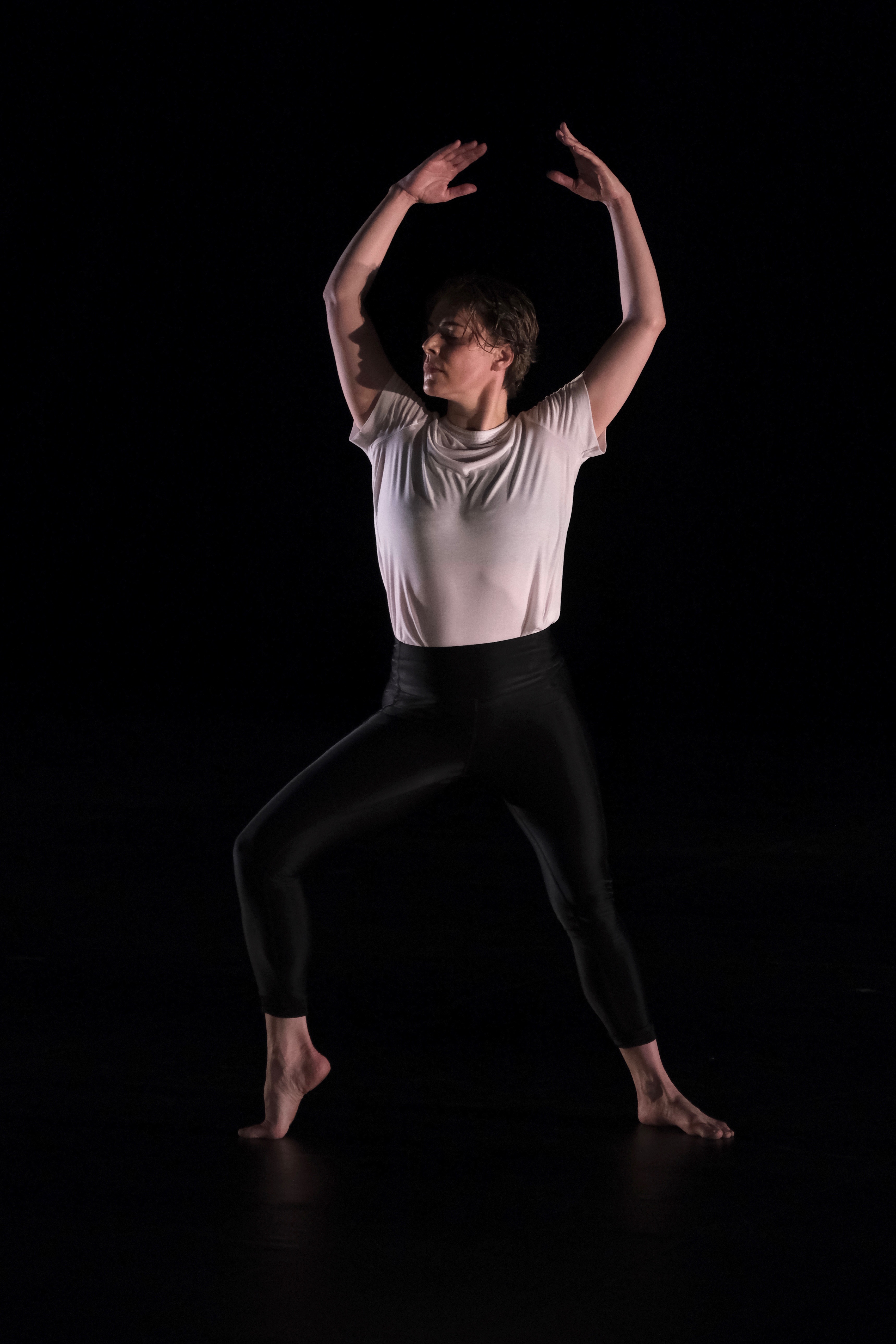
Adult Female Dancer 2021, Brian Slater
You encourage all dancers and creators working with your new company to sign the Charter of Creation. What is the rationale behind it? Shouldn’t it be obvious that art is free and artists do oppose censorship in all forms?
I would have thought that some of the tenets in the Charter of Creation would be obvious to young artists today, but they simply are not. Somewhere, we have lost exactly of what the arts are for, what they stand for and the values we embody as artists, the first and foremost should be the practice of freedom of thought and freedom of conscience. Through these freedoms come the freedom of expression and that is where artwork really lies. Through this recent level of artistic censorship, I have had to exercise my freedom of speech, to speak out, in order to fight for values I think are essential to a healthy and democratic society.
Some of the points in the charter are about making sure that it is space where we can explore the depths and the heights of humanity through our art without fear of being silenced, shut down or cancelled. We are a creative platform to generate emotion, thoughts, questions and debate from our audiences. We are here, together, to serve the art, to serve the ideas and to articulate this as clearly as possible. We are a creative platform to generate emotion, thoughts, questions and debate from our audiences. Our judge is the public, the audience and the critics.
I think it is shocking that I must write a charter like this, but I have learnt this the hard way and I will not have it affect or kill creativity, in me, in others or in my work. Fear kills creativity. I want everyone to start on the same page, so that if we do have disagreements, or arguments, or don’t agree, we can at least acknowledge that we are arguing over ideas which is healthy, and not attacking each other personally, which nobody wants to do in the arts.
What trends do you observe in arts beyond the imposed transgender ideology?
Right now, we are in quite a dull and pessimistic place in the West in the arts. There is a lot of fear, a lot of censorship and before that a huge amount of self-censorship in the arts and theatre. The groupthink has taken hold and organisations seem to now be in fear of their own staff who may complain or bring down a ‘dangerous’ or ‘unsafe’ show at any moment. Of course, what is deemed unacceptable is constantly shifting- there is no clear definition, it can be comments you made in the privacy of your own home, comments you made in defence of JK Rowling, or even tweets from years previously that gets you cancelled. What is truly horrific is that as well as not knowing what you can be cancelled for, the cancellation seems to have no end point. Those attacking want your career to end, your livelihood to end, and anyone, literally anyone who even stands next to you, never mind support you, is liable to be cancelled too. What more can these bullies want? Do they want people to actually kill themselves, as has happened both in the UK and USA? This truly is a destructive, jealous and life-deadening movement of annihilation and nihilism.
And so it can not continue forever. By its very nature it is anti-art, anti-creation, anti-joy and anti-truth. When you create you always try to find the truth, the beauty and the urgency in your work, whatever the subject. These are the qualities that make art vital, life affirming, and most obviously, make audiences return to the theatres and pay for their tickets!
The irony of all of this is those venues with brave directors, brave producers and clever impresarios, who have just stood up and said no to the bullying, are the theatres that are doing OK with this crisis we have right now. They have taken the so called ‘cancelled’ artists and put on their shows and audiences want to see them. Nobody, in real life, wants to be lectured to, harangued, and told their views are old fashioned, boring or out of date. We want the wonder of live art, live theatre, live performance. That is what brings change in ourselves.
So, to be optimistic, I think we might well see a new wave of those who have been cancelled. I see a trend coming where the ones who spoke out become the brave ones. There will be a new wave of the brave, the rebels, those who truly understand the meaning of art and of free speech. We will need to build a new network of outsiders, of truth speakers and real artists. It will be where the best art is, the best conversations and the best parties!
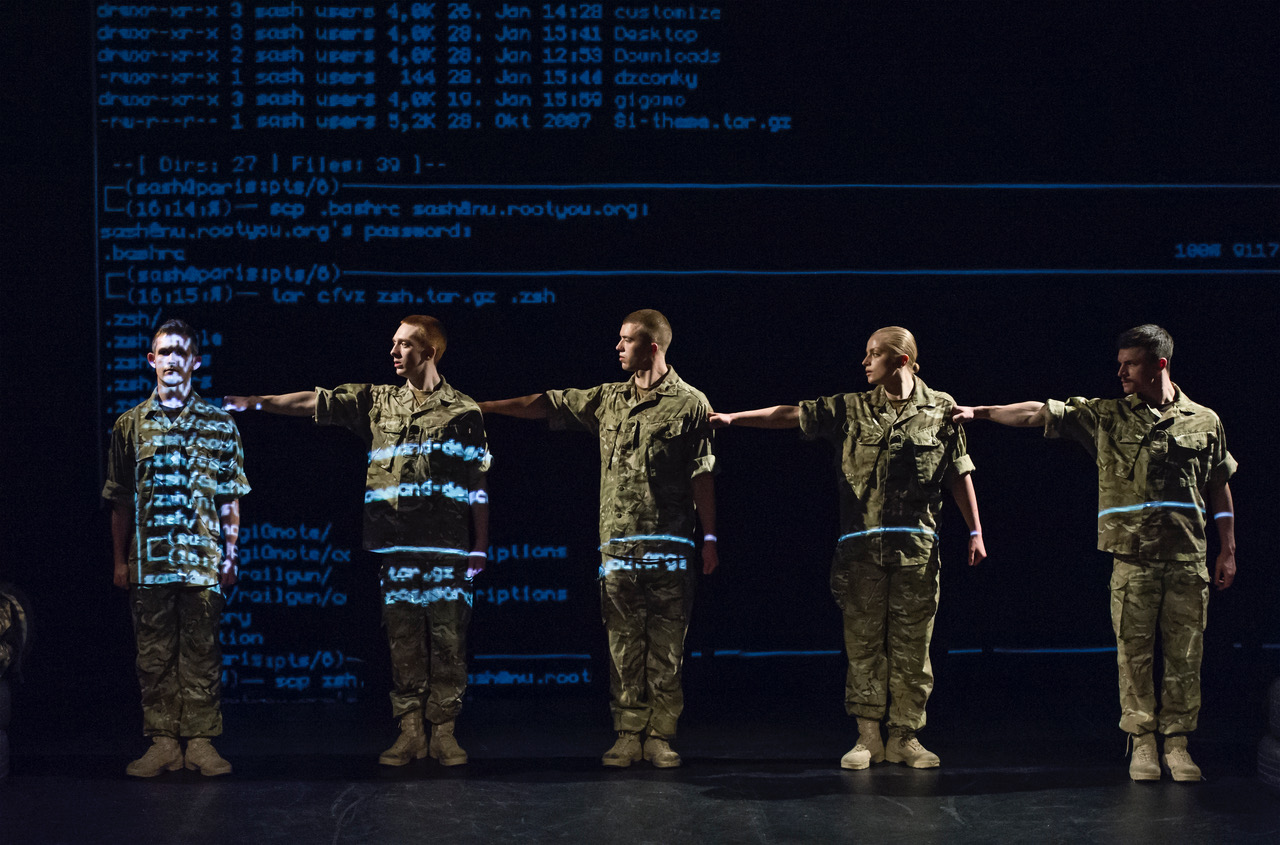
5 SOLDIERS, Brian Slater
Where are the fearless, creative artists and their arts shown nowadays? They must exist, don’t they?
I think some very clever artists are managing to still work in the new system, while opposing it within their work. That’s where I was and that’s what I was trying to do, but it is seriously risky and there are so many trip wires on so many subjects, that you’d better have the tightest of tight teams around you to protect you to not get caught out, found out or ‘called out’ as they like to say.
There does not yet exist a new network of venues that are brave and courageous, but I am trying to help be part of that. Many individuals in the arts really do know what is going on and hate it, and they are willing to protect the arts and vulnerable artists, they are amazing. There is another layer of directors who know what is going on but are too afraid to help- maybe their livelihoods would be at threat, maybe they are bullied by their staff, their management, their scared board, or even by their children (I’ve heard this). I am getting a bit impatient with these people, as I think now is the time to stand up and defend art and the reasons these institutions exist properly and openly. There are others who may not agree but self-preservation comes first and are willing to toe the line- I think they are self-serving individuals. And then there are the idealogues, the fanatics the proselytisers and cynically, those who use a part of their identity to be fashionable right now, while producing pretty terrible art.
I think we need to build new networks, and new organisations and just be better and make more interesting work.
When I listened to one of your public engagements you said that all your life works and early childhood experiences have led you towards that moment. Could you explain what did you mean?
I could write a book on this- and I am thinking about doing exactly that!
Sadly, I was born after the death of my brother, and so some of my childhood was being the son that my family had lost. One the one hand I danced, because I loved it and it made everyone happy, on the other, I loved football and steam trains and defied gender stereotypes, because from a very young age I had thought, what would my brother want to do? I also used to think as a teenager, what would my brother have got away with? I never wanted to be the ‘good girl’, although of course there is a bit of that in me. I wanted to be an investigator, a free spirit, a woman who could do and be anyone I wanted, an adventurer.
I grew up in a family marked by WW2, and at the dinner table we would talk of the rise of fascism, the effect of communism, and how people resisted to authoritarianism. I first visited Russia in the early 90’s and I fell in love immediately. I then studied German art of the Weimar Republic and Nazi art, and at University my subject of excellence was the history of Weimar and Nazi dance and choreographers. I was a bit obsessed with German history for a long time. I went to Berlin alone, just a few years after the Berlin wall came down to visit all the art galleries and soak up the atmosphere. I think I could have lived in a Christopher Isherwood novel!
It was only a year after my beloved Polish grandfather died that I was invited to Poland to join Polish Dance Theatre in Poznan. This had a profound effect on me and my dancing and following my time in Poland I lived and worked in New York, Berlin and the south of France.
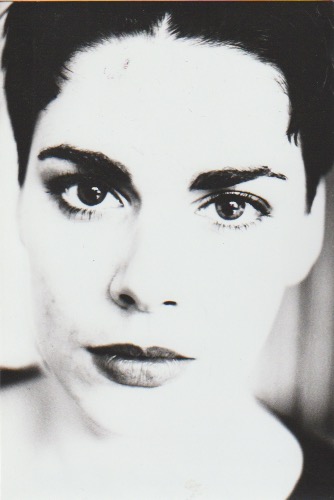
Polski Teatr Tańca - Headshot 1998
I only returned to the UK in 2003, and I returned because I saw how much investment was going into the arts through the Blair government of that time- art was seen as regeneration and it was a very optimistic time to be back in the UK. I moved to Birmingham, a city I’d never visited before, and was struck by its dynamism, its industrial history and the fact that it had these fabulous dance studios but hardly any dancers or choreographers! I’ve spent that past 20 years building my company, from solo and duet work to large scale shows and international touring. My work and my choreography was everything to me, so in some respects I was working in my own bubble.
However, I did know what was going on. Since 2010 I was working on a trilogy of works; 5 SOLDIERS about the body and war, There is Hope about religious evocations through the body and MK Ultra about politics, conspiracy theory, CIA brainwashing and pop stars. Looking back, each work has elements that explore group dynamics, loyalty, and in the extremes, ideas around cults and when group dynamics become dangerous. They are also what I jokingly entitled ‘things not to be discussed at dinner parties’- which were, at the time, war, religion and politics! Not so jokingly now, it seems we have a long list of what cannot be discussed; sex, gender, trans, covid, vaccines, race, climate change, abortion and in the UK, Brexit, Scottish independence or corruption. Everything is divisive. And if it’s not, somebody will make it!
I suppose what I am saying is this fragility of the arts, this fine balance between extraordinary creativity, the need, the utter burning desire to tell the truth, sits uncomfortably with a corporate arts market, a market of selling a product to theatres, or fear of offence to anyone and a lack of artistic bravery and more and more financial insecurity and it sits very uncomfortably, as a world starts to become less healthy, less tolerant and entitled to more and more offence from extremists with the loudest voices. I’m ready, I am highly trained, and I am not willing to compromise, even if that makes me a little bit alone in the arts world of the UK right now.
Can you tell us more about your time spent in Poland in the 90-ties? How did you connect to your Polish roots?
I was so excited to be offered the position with Polish Dance Theatre in 1998. I arrived with no Polish language, only a small phrase book and dictionary, a suitcase and lots of trepidation. What was so exciting was that I was to learn a major role in just a few weeks and perform on a scale that only large-scale ballet companies do in the UK. I was to play Madame de Trouvel in Dangerous Liaisons, which was a dream come true- a wonderful role of dancing and huge theatres which I adored.
I had quite a culture shock when I arrived; I’d grown up as student in 90’s London, very ‘Cool- Britannia’, all baggy trousers, rebellious, and Poland was in a post-communist place. The cool bars were quite new, going out and socialising was fairly new and very exciting to be part of. I had to learn Polish fairly quickly- Poznan only had one supermarket in the city centre, so I had to learn how to ask for specific foods in order to eat- not only ask but be understood! I was very lucky to be supported by one of the company dancers- really she was the prima-ballerina- and she gave up her lunch times to tutor me, which was much more effective than the Polish classes I paid for in the college. Polish grammar baffled me- particularly as I didn’t even know my English grammar!
I had an incredible time- dancing on some of the best stages in Poland and Germany, learning roles and creating new roles. I also began to choreograph, making my first ever solo show in my summer holiday between seasons in 1999, premiering at Edinburgh Festival Fringe and winning critical acclaim and awards. One of my solos, Patisserie, was based on in-depth interviews I undertook with Polish women about their appearance. I made a lot of good friends, particularly in the theatre world, which was so interesting. On one memorable trip we were all staying in Wroclaw to work at Teatr Polski. I couldn’t believe it when I got an apartment in the Grotowski theatre and stayed in Grotowski’s actual theatre. The history and pedigree of Polish theatre and dance was a wonderful training ground for me, and I am absolutely sure it has an influence on my work now.
What are the other threats to freedom in our societies?
First of all I don’t think the West knows what it is about to lose, if it is not more careful. In the US they had McCarthyism, and this feels little bit similar, with blacklists and censorship. In the UK we haven’t really had a movement like this before, and I am shocked that the British art scene, renowned across the world for its innovation and rebellious attitude is letting itself be swallowed up like this. I was sure we had higher standards. However, decades of ‘market speak’, monetisation and a mass administrational class has taken the power out of the hands of the artists, and into the hands of the curatorial class- those who have all the power and all the money, without any of the risk.
Serious threats to our democracy are of course a widening and spreading war in Europe, of which again I am not sure the West is prepared for psychologically. Since Iraq and then Afghanistan, we have not proved ourselves to be strong on the moral front in terms of defending what we said we were there to defend- eg democracy, rights of women, freedom to education etc. I think this makes the West look weak, as it spouts all these values but often what happens on the ground does not support this moral positioning.
The way the police are behaving in the UK has some worrying aspects, particularly recently on ideas and legislation on Non Crime Hate Incidents (NCHI) of which Harry Miller and We are Fair Cop, or The Bad Law Project, has drawn attention to. This seems to be a situation where if you tweet something that is non-orthodox eg gender critical, then you can get complaints from Trans Rights Activists (not necessarily trans people themselves) that merit a visit or even an arrest from the Police. I think this is extremely worrying, as in the UK we have a police force that is there by consent of the people to serve without fear or favour. I think the chilling effect of the police being involved in ‘wrong think’ crimes (as in there is no crime but an opinion or belief that is seen to offensive by others), which will in turn silence anyone who wants to state the truth, even if that is a scientific or fact-based truth.
Finally, I think that actually we have a huge amount of freedoms, but we are in danger of losing them, almost voluntarily, if we do not stand up, individually and collectively to challenge this idea that we must all think the same and have the same opinions.
Rosie Kay Biography
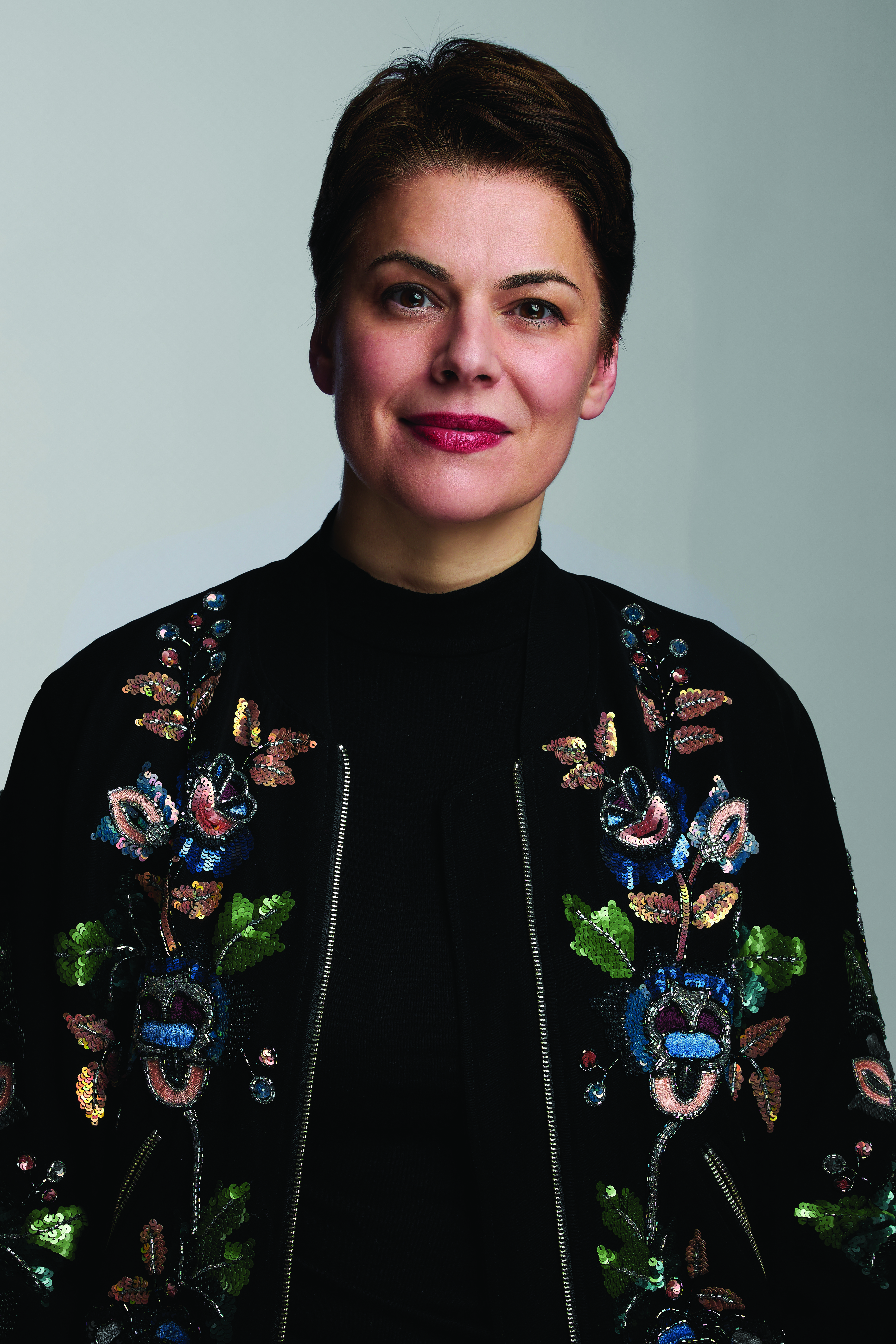
Rosie Kay by Ian Wallman
Rosie Kay (BA Hons) FRSA, MCR St Cross College, Oxford, born in Scotland, danced from a very early age, then trained at London Contemporary Dance School, graduating in 1998, before a career as a dancer in Poland, France, Germany and the USA. Kay returned to the UK in 2003, founded Rosie Kay Dance Company 2004-21 and is now setting up a new venture for her future works K2CO.
Kay’s works up to date include a contemporary set adaptation of Romeo + Juliet (2021), and returned to performing on stage with the Absolute Solo II tour in 2021 with three personal solos danced by Kay, with Adult Female Dancer celebrated as the ‘Top 5 Dance Works of 2021’ by The Observer and Kay was nominated for a National Dance Award 2022 for Outstanding Female Performance (Modern) for Absolute Solo II. Kay is well known for the multi- award-winning work 5 SOLDIERS (2010- present) based on intense research with the British Army and large-scale development of this work, 10 SOLDIERS (2019). Kay’s works tour to Sadlers Wells, Birmingham REP, Norwich Theatre Royal, Salisbury Playhouse and regularly tour Europe and the USA.
Rosie Kay’s Fantasia, a pure-dance work about beauty was included in The Guardian’s ‘Top 10 Dance of 2019’. MK ULTRA was created in 2017 a work about conspiracy theory and pop made with BBC film-maker Adam Curtis. Other works include Motel (2016), a collaboration with visual artists Huntley Muir, Sluts of Possession (2013) created with rare archive material from the Pitt Rivers Museum, Oxford, There is Hope (2012) exploring religion, Double Points: K (2008) a collaboration with Emio Greco| PC and Asylum (2005) based on research with asylum seekers. Kay choreographed the live Commonwealth Games Handover Ceremony (2018), watched by over 1 billion people worldwide and has worked in film as the choreographer to Sunshine on Leith (2013).
Kay was the first choreographer appointed Leverhulme Artist in Residence at the School of Anthropology, University of Oxford (2013). Awards for her work include Best Independent Company (2015) and nominated for Best Choreography for 5 Soldiers (2015), National Dance Awards and nominated for Best Independent Company 2012 and 2017, a Royal Society for Public Health Award for support to military communities, and the Bonnie Bird New Choreography Award.
In December 2021, Kay resigned from the company she founded, Rosie Kay Dance Company, citing constructive dismissal and discrimination. Kay was then was interviewed by Janice Turner in The Times and publishing an account of her story un Unherd.
Rosie Kay in the media:
Website: https://k-2co.com
Twitter: @RosieKayK2CO
Facebook: https://www.facebook.com/RosieKayK2CO
Instagram: @rosiekayk2co
Donorbox: https://donorbox.org/K2D-support-Rosie-Kay


